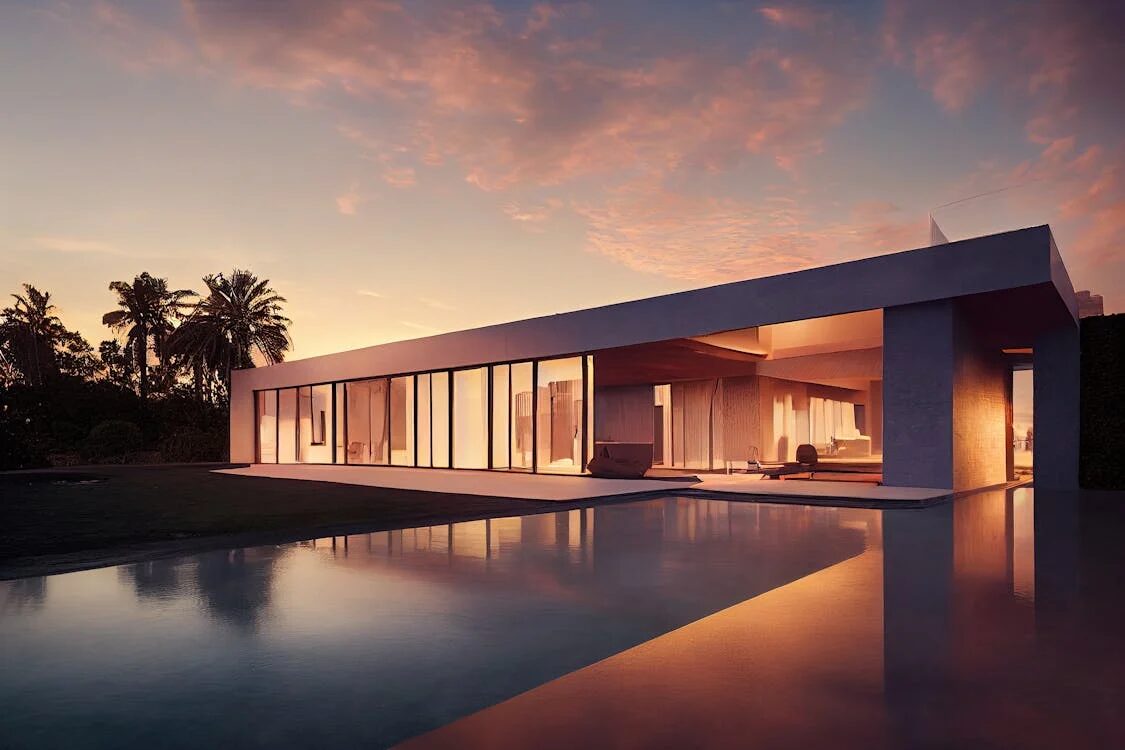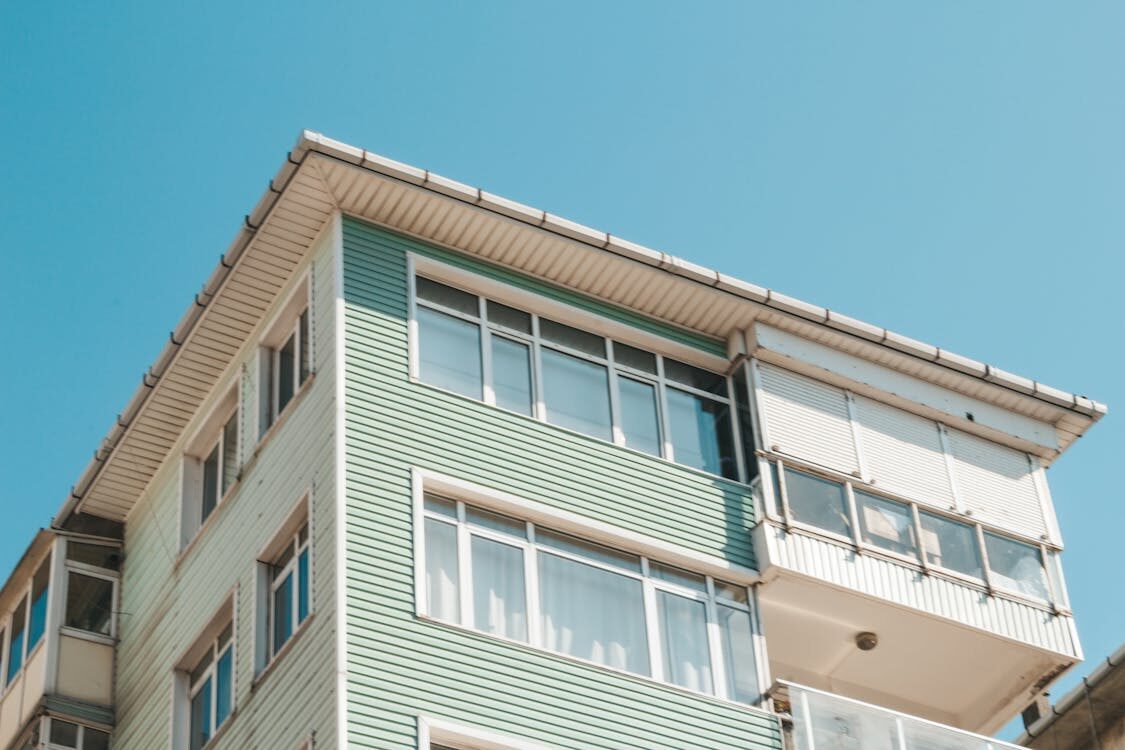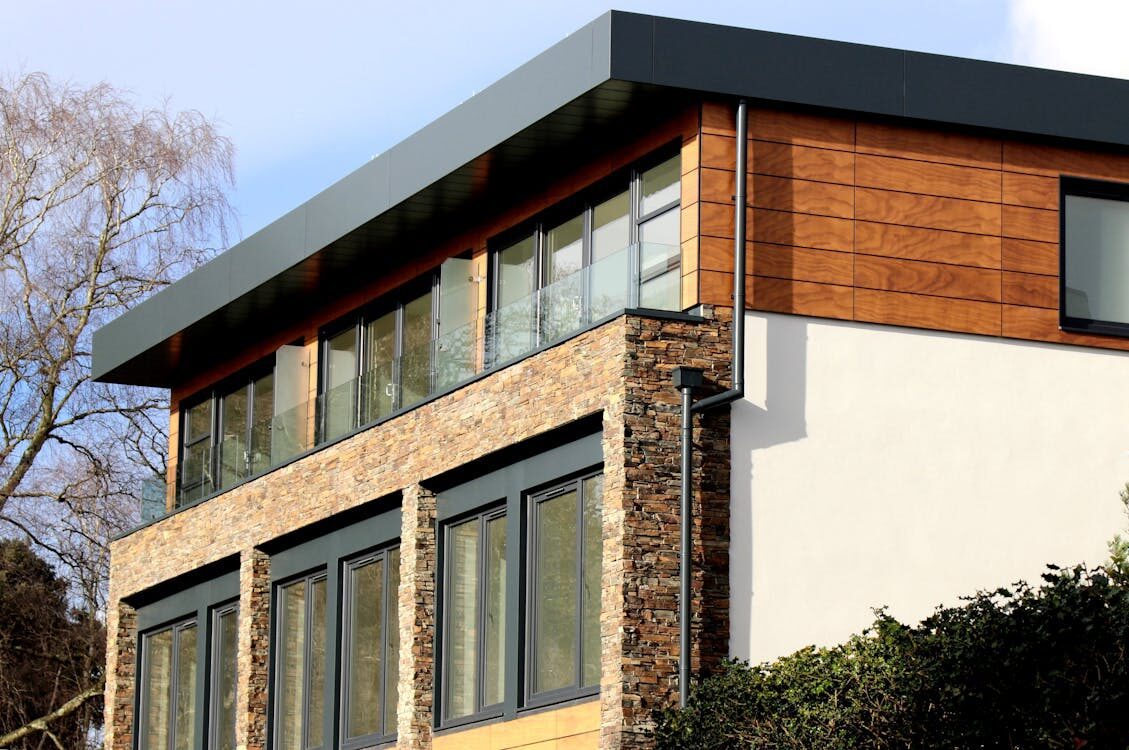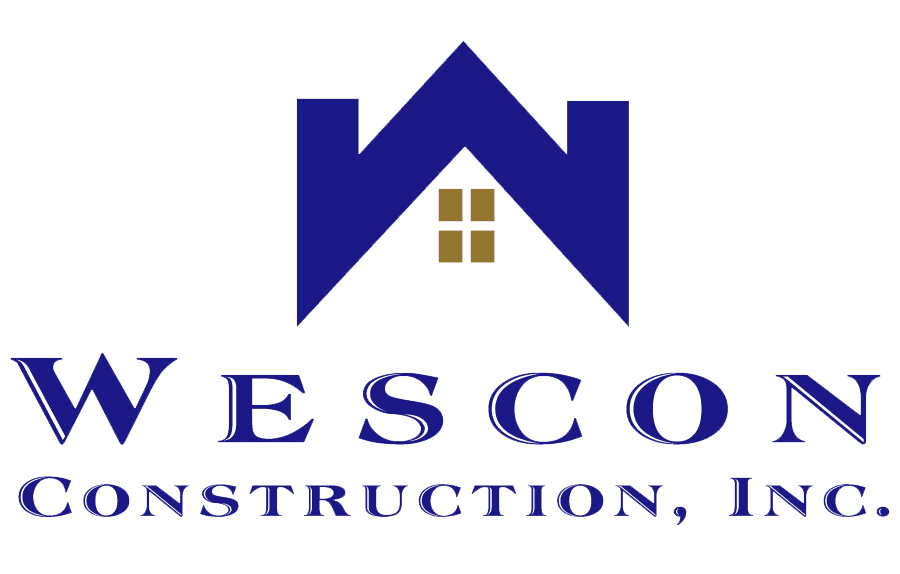Flat Roofs in Florida: Pros & Cons!
Flat roofs are a common choice for Florida homes and commercial buildings due to their sleek look and efficient use of space. However, they have unique benefits and challenges, especially in Florida’s tropical climate.
So, are flat roofs the right choice for your property? Let’s explore their pros, cons, and what to consider before making a decision.
Key Takeaways:
- Flat roofs offer affordability and space efficiency, making them popular for residential and commercial properties.
- Maintenance is critical due to Florida’s heavy rainfall and intense sun exposure.
- They can be energy-efficient when combined with proper insulation.
- Limited drainage can lead to ponding water and damage if not addressed.
- Proper installation and quality materials are essential for durability in Florida’s climate.

What Are Flat Roofs and Why Are They Popular in Florida?
Flat roofs are characterized by a minimal slope and offer modern aesthetic and practical benefits. In Florida, they’re trendy because of their cost-effectiveness and suitability for solar panel installation. They also maximize usable space, which is an advantage for urban areas or homes with limited yards.
Related: What To Look For When Hiring a Roofing Contractor
The Pros of Flat Roofs in Florida
1. Affordable Installation Costs
Flat roofs are generally less expensive to install than sloped roofs. They require fewer materials and are faster to build, which reduces labor costs. In Florida, where hurricanes can cause extensive roof damage, opting for a cost-effective solution is often appealing. Replacing your roof is a critical investment, and understanding the cost breakdown can help you make an informed choice.
2. Ease of Maintenance
Flat roofs are easy to access for inspections, repairs, or cleanings. This accessibility makes routine maintenance less daunting and more affordable. However, it’s essential to maintain them regularly, especially in Florida’s rainy season, to prevent water pooling and leaks.
3. Energy Efficiency Potential
When paired with reflective coatings or materials, flat roofs can minimize heat absorption. This helps keep buildings cooler, reducing energy costs. In a state like Florida, where air conditioning is a year-round necessity, energy savings are a significant advantage.
4. Versatile Usable Space
A flat roof can double as a functional area, such as a rooftop garden, patio, or solar panel installation site. Florida homeowners often appreciate this feature as it allows for creative uses of their outdoor space without expanding the footprint of their property.
5. Sleek, Modern Aesthetic
For those who value contemporary design, flat roofs offer a clean and minimalist look that complements modern architectural styles. This makes them popular for both residential and commercial buildings in Florida.

The Cons of Flat Roofs in Florida
1. Drainage Challenges
Flat roofs don’t shed water as effectively as sloped roofs, making them susceptible to ponding water. In Florida’s rainy season, this can lead to leaks, structural damage, or mold growth. It’s essential to incorporate proper drainage systems during installation to mitigate these risks.
2. Vulnerability to UV Damage
Florida’s intense sunlight can accelerate the wear and tear of roofing materials. Without proper protective coatings, flat roofs may deteriorate more quickly, leading to costly repairs or replacements. Using high-quality materials and investing in routine maintenance are key.
3. Shorter Lifespan
Compared to pitched roofs, flat roofs generally have a shorter lifespan. While newer materials are improving durability, you may still need to replace your roof every 15–20 years in Florida’s challenging climate.
4. Limited Aesthetic Options
Flat roofs often lack the visual appeal of more traditional sloped or pitched designs. While they suit modern architecture well, they may not align with the aesthetic preferences of every homeowner.
5. Increased Maintenance Needs
While easy to access, flat roofs require frequent inspections to address drainage issues, cracks, or surface damage. Neglecting these tasks can lead to costly repairs down the road. Learning about hurricane-proof roofs can offer additional insights for homeowners concerned about storm resilience.

Flat Roof Alternatives to Consider
While flat roofs have their advantages, exploring alternatives can help you determine the best fit for your property. Sloped roofs, such as gable or hip designs, provide excellent drainage and are naturally more resistant to leaks.
Additionally, materials like metal roofing are highly durable and perform well in Florida’s coastal environments, especially near saltwater.
Another option is a hybrid roof design, which combines flat and pitched elements to balance aesthetics with functionality. This type of roof can offer the modern look of a flat roof while mitigating drainage concerns.
Understanding the strengths and challenges of each roofing style will ensure your property is well-prepared for Florida’s unique weather conditions.
Related: What To Know before Hiring A Roofing Contractor
Is a Flat Roof Right for Your Florida Property?
Choosing a flat roof depends on your property’s specific needs and your willingness to maintain it properly. Flat roofs can be an excellent choice for Florida’s climate when installed and maintained correctly. For properties near saltwater, exploring metal roofing options might provide a more durable alternative.
Tips for Maintaining Flat Roofs in Florida
- Regular Inspections: Check for cracks, ponding water, and signs of wear at least twice a year.
- Proper Drainage: Ensure drains are clear and functional, especially before the rainy season.
- Protective Coatings: Apply reflective or UV-resistant coatings to prolong your roof’s lifespan.
- Prompt Repairs: Address minor issues quickly to prevent them from becoming costly problems.
- Professional Maintenance: Hire a licensed roofer for periodic inspections and expert repairs.
Get Expert Help with Your Roofing Needs
Deciding on a flat roof requires careful consideration of your property’s needs and Florida’s unique climate challenges.
Whether you’re weighing your options or need assistance with maintenance, contact Wescon Construction today to schedule a consultation. Their expert team can help you determine the best roofing solution for your home or business.

Conclusion
Flat roofs offer numerous advantages, including cost savings, energy efficiency, and modern design. However, they require diligent maintenance and proper installation to handle Florida’s demanding weather conditions. By understanding the pros and cons, you can make an informed decision that fits your needs and budget.
Ready to take the next step? Explore roofing solutions tailored for Florida homes with Wescon Construction. Their experienced professionals are here to guide you through the process and ensure your roof is built to last.
Need Expert Advice on Your Roofing Project? Contact us today!
"*" indicates required fields
